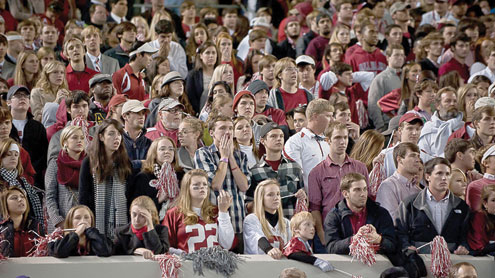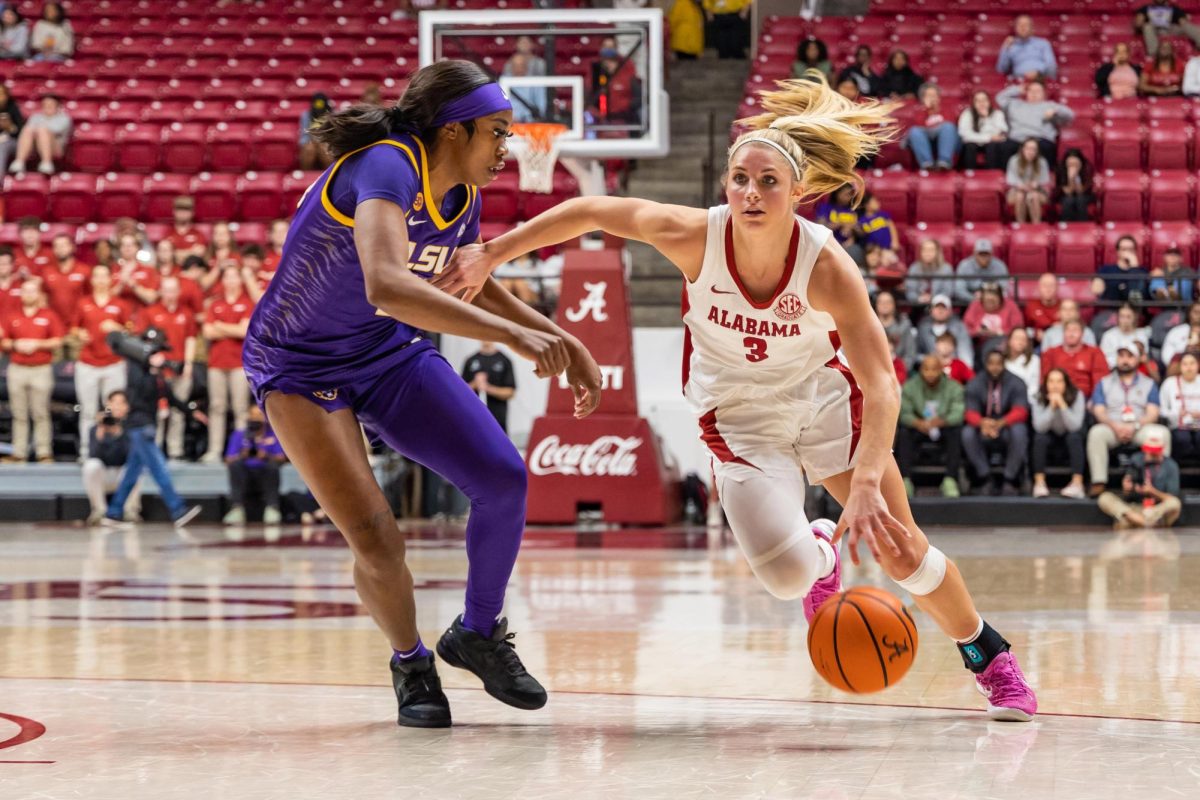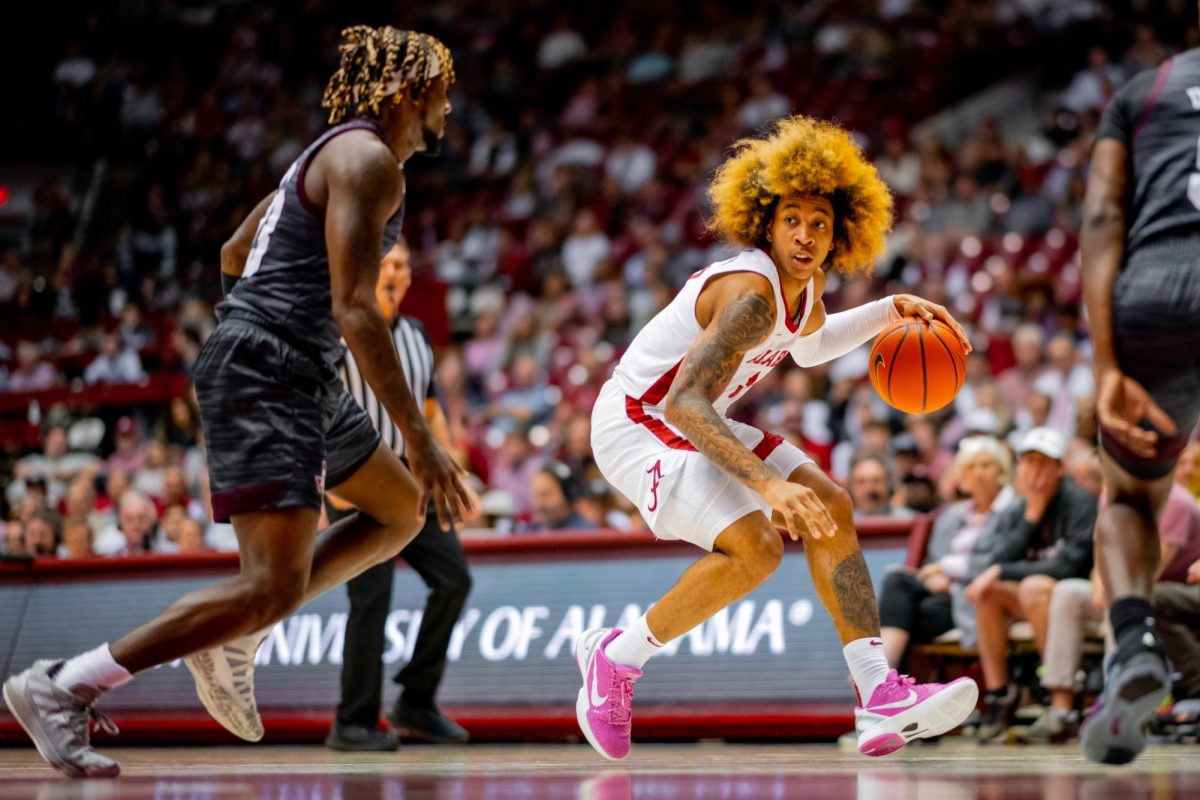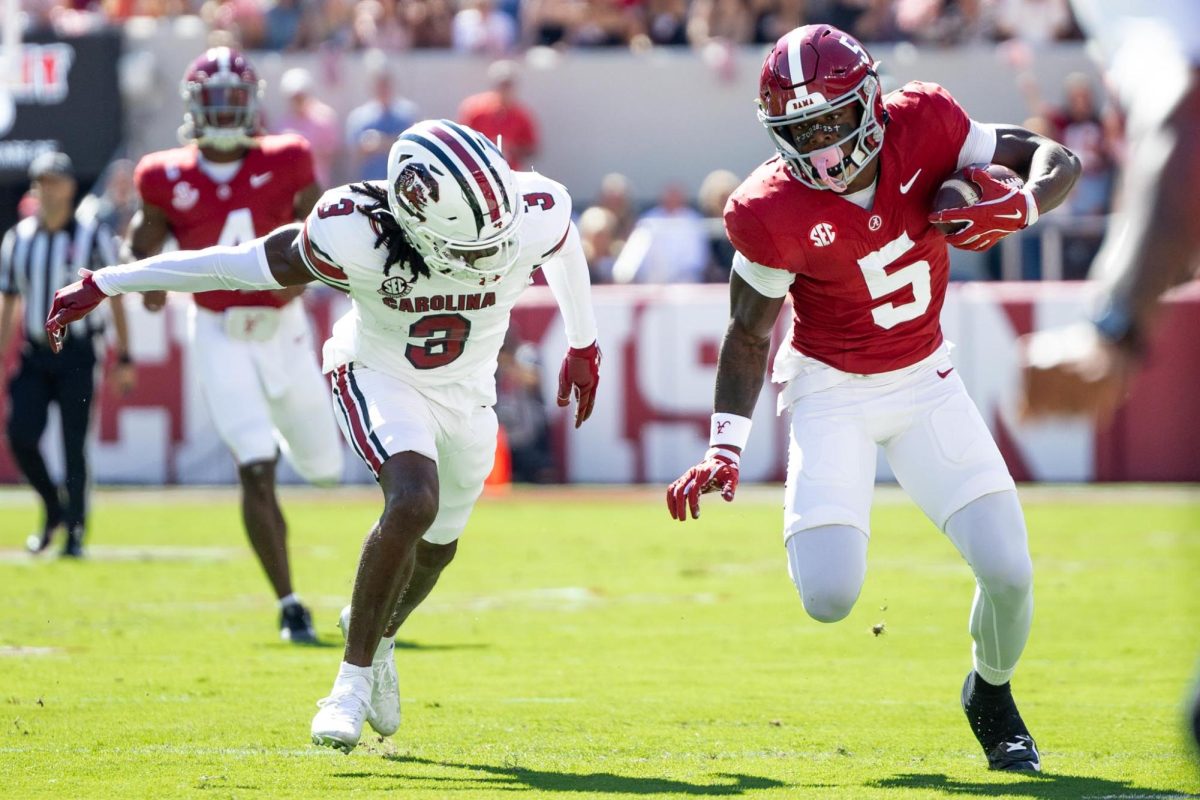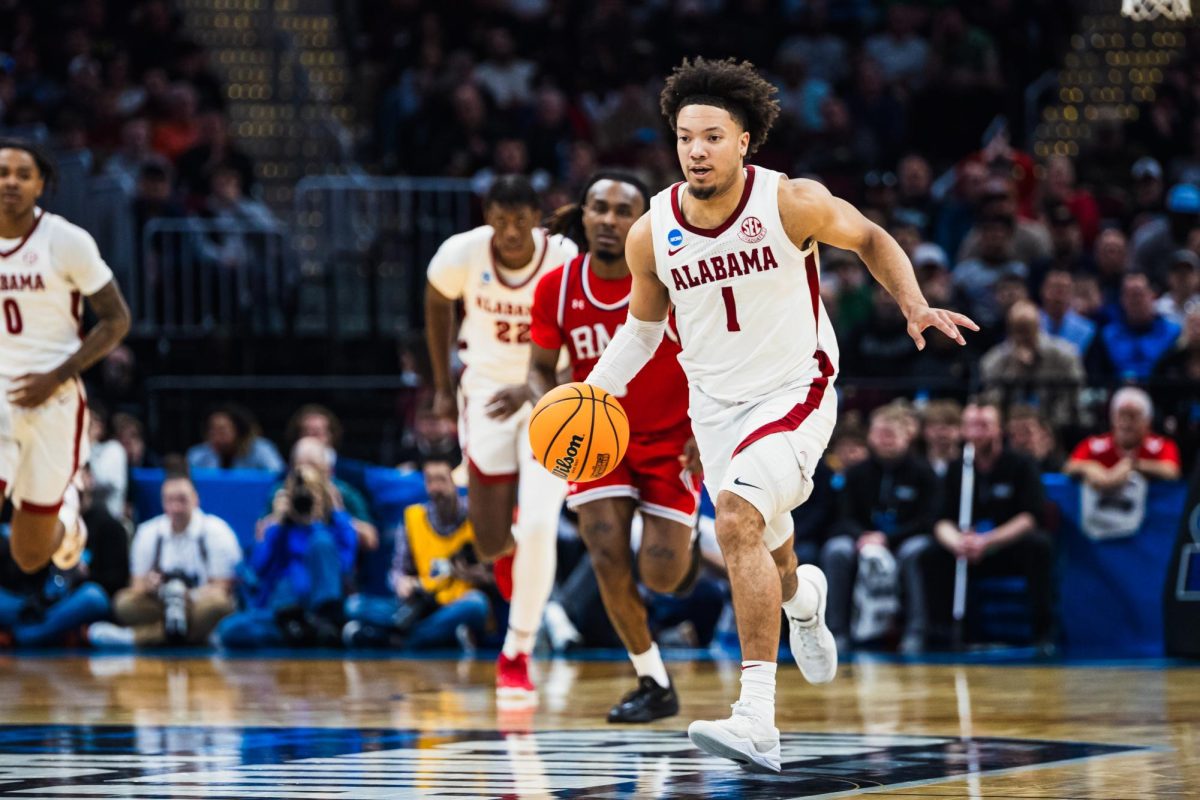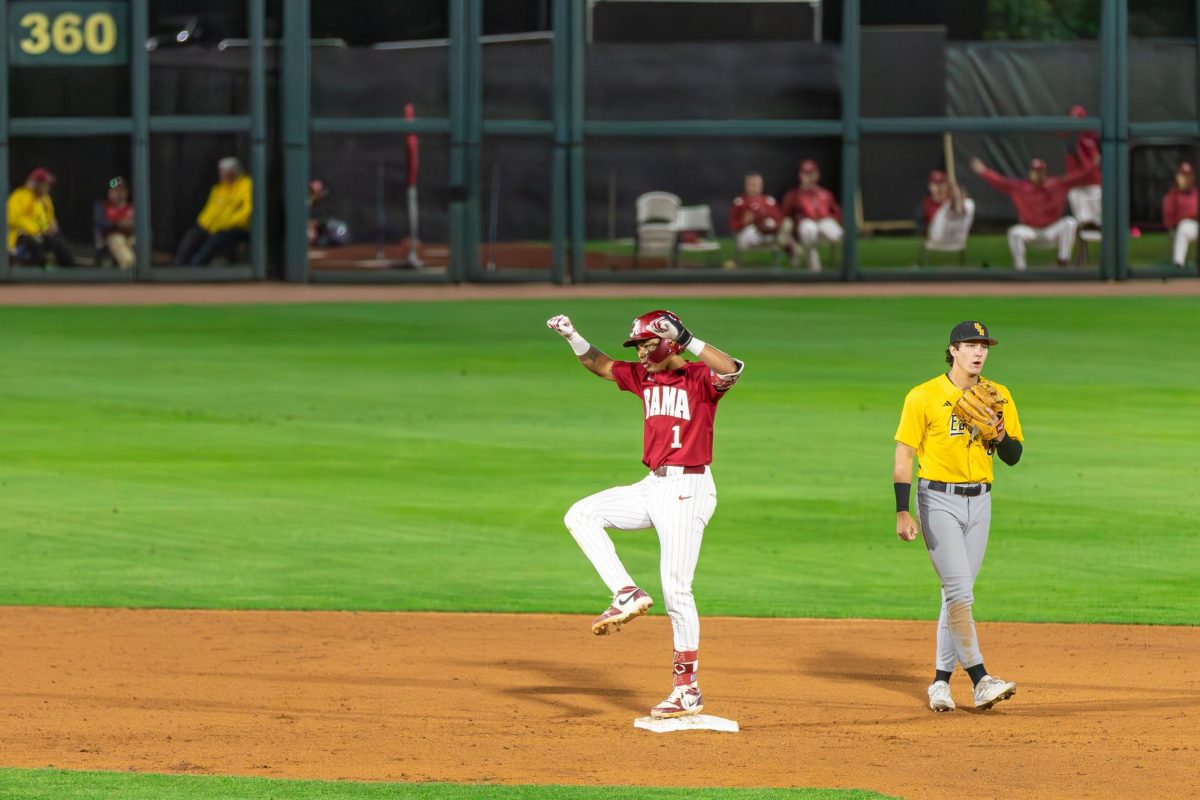 After being forced into overtime, the Game of the Century had ended in a 9-6 LSU win and fans began to file out of Bryant-Denny Stadium. Most of the crimson-clad men and women had the same look on their faces: a mix of confusion, shock, anger and depression.
After being forced into overtime, the Game of the Century had ended in a 9-6 LSU win and fans began to file out of Bryant-Denny Stadium. Most of the crimson-clad men and women had the same look on their faces: a mix of confusion, shock, anger and depression.
But, as center William Vlachos said after the game, “If we continue to keep the foot on the pedal and get better, I think we have a chance to do something very, very special this season.”
Going into a rematch of that game with the most special prize in college football at stake, it is clear that Alabama has to correct the mistakes it made in the Nov. 5 showdown that left the fan base so astounded to win the BCS National Championship.
Move the ball effectively in LSU territory
The popular thing to do is to blame the loss on Alabama place kickers Cade Foster and Jeremy Shelley, who went a combined 2-for-6 against LSU.
However, looking at the numbers, the three kicks that were missed (the fourth missed field goal was blocked) were from distances of 44, 50 and 52 yards.
Those kicks are difficult even for the best college kickers around. In fact, not one of the three kickers that are finalists for the Lou Groza Award, given to the nation’s best placekicker, are perfect from 40-49 yards. They also combine to be only 50 percent from 50 yards and further.
Had Alabama’s offense been more effective moving the ball in LSU territory, the kickers would have had much easier attempts. For example, on the first possession of the game, Trent Richardson caught a pass from AJ McCarron for 22 yards to get the ball in LSU territory.
The following play, the first in LSU territory, was a Richardson run for a loss of five yards. Alabama was forced to settle for a fourth and seven, resulting in Foster’s 44-yard miss.
Alabama was able to push deep into LSU territory in the second possession, off of a 20-yard run from Eddie Lacy. Then, Alabama got a five-yard illegal substitution penalty, followed by two more runs from Lacy that totaled a loss of five yards.
With the momentum killed, Alabama was forced to settle for a 44-yard field goal, Foster’s second miss. With an extra first down or two, the Crimson Tide’s specialists would have had much easier field goal attempts to make.
Convert the Big Play
There is an old football adage that says big, tightly contested games like this one come down to just a few plays. That idea held true in the first meeting between Alabama and LSU, with an LSU interception and an untimely penalty being highly ranked as game-defining plays.
With only 11 minutes left in regulation and the ball on the LSU 28-yard line, Alabama lined up with Marquis Maze at quarterback and had him trick the defense into over-committing to the run, in hopes that he could throw over the defense to Michael Williams for the touchdown.
Setting the controversy of the ensuing video replay aside, the play was ruled an interception after Williams and LSU defensive back Eric Reid fought for the ball in the air. Had Alabama made the catch, the ball would have been on the one-yard line, giving Alabama the best touchdown opportunity of the game.
“We used Maze back there, and he made a good throw, and we had an opportunity to catch the ball, but we didn’t finish the play,” head coach Nick Saban said after the game.
The untimely penalty came on an interception return by Mark Barron. Barron intercepted a Jarrett Lee pass near the LSU 40-yard line, then returned it to the three-yard line, but was called back to the 35-yard line after a block in the back penalty. This missed big-play opportunity also cost the Tide a great shot at six.
“[It was a] monumental play,” radio show host Paul Finebaum said. “Without the penalty, Alabama would have scored a touchdown, and I’m not sure the game would have been that close.”
Linebacker Courtney Upshaw talked about the missed opportunities after the game, when he said, “We knew it was going to be a tough game. We knew it was going to be a hard-fought game. It just came down to who executed on the chances that they had. They did.”
Prepare for more than one RB
Coming into the game, which was expected to be a defensive struggle, most of the focus was on which running back would be able to find a way through the other defense, Alabama’s Richardson or LSU’s Spencer Ware.
Overshadowed in the media hype was running back Michael Ford, who almost doubled Richardson’s yards per carry in the Nov. 5 meeting, getting 72 rushing yards on 11 carries in comparison to 89 yards on 23 carries for Richardson.
“It seemed, at times, [that] the coaching staff went into mental freeze,” Finebaum said.
While the Alabama defense was successful in containing Ware, holding him to only 29 rushing yards, this opened a hole for Ford, a hole that Alabama can not allow if the Tide is going to bring home its 14th national championship.



